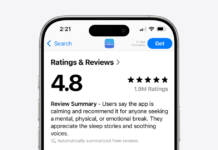[ad_1]
Direct Preference Optimization (DPO) has been widely adopted for preference alignment of Large Language Models (LLMs) due to its simplicity and effectiveness. However, DPO is derived as a bandit problem in which the whole response is treated as a single arm, ignoring the importance differences between tokens, which may affect optimization efficiency and make it difficult to achieve optimal results. In this work, we propose that the optimal data for DPO has equal expected rewards for each token in winning and losing responses, as there is no difference in token importance. However, since the…
[ad_2]
Source link




